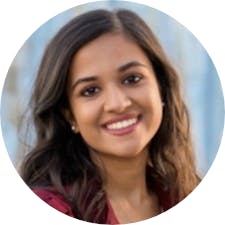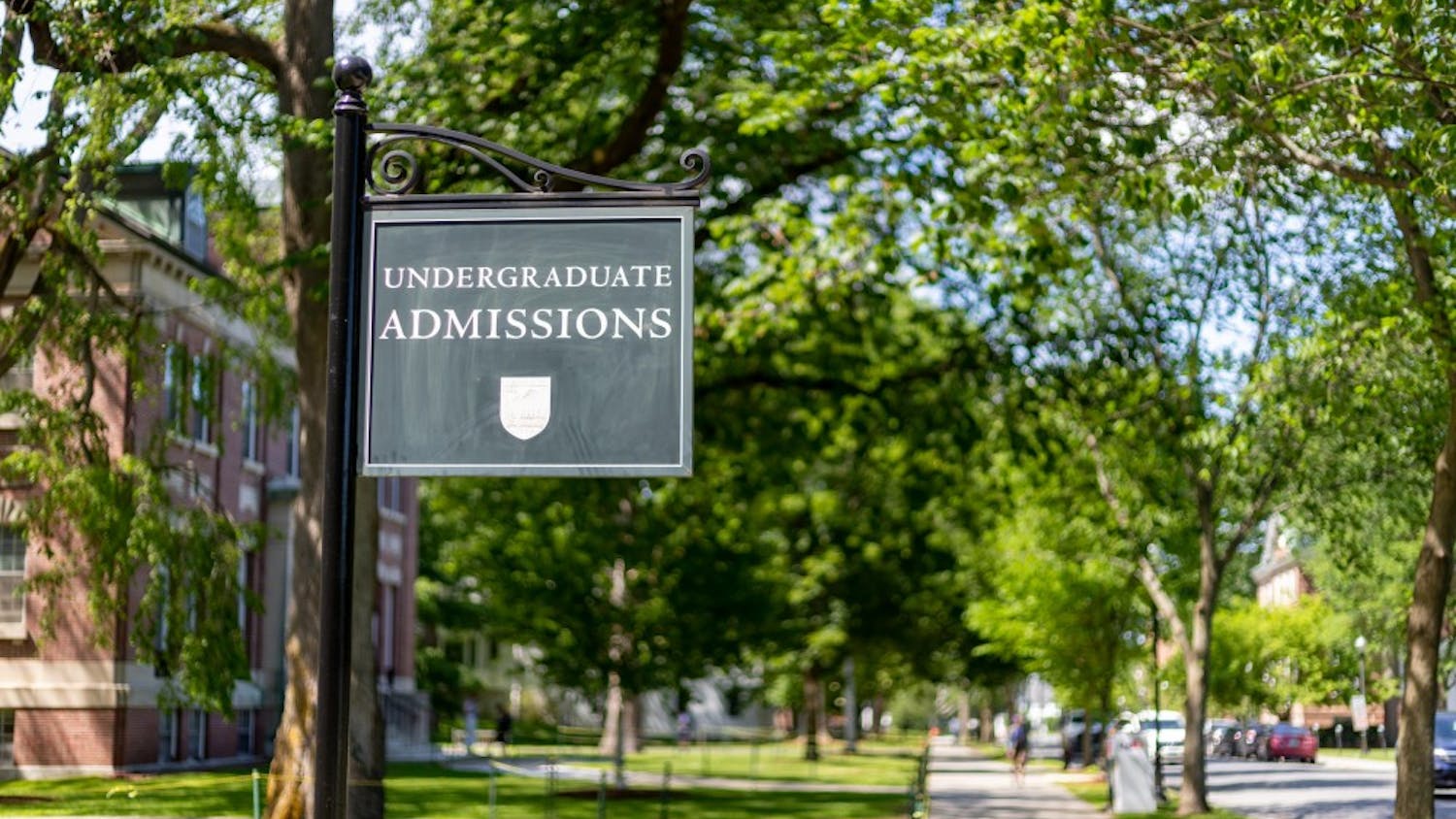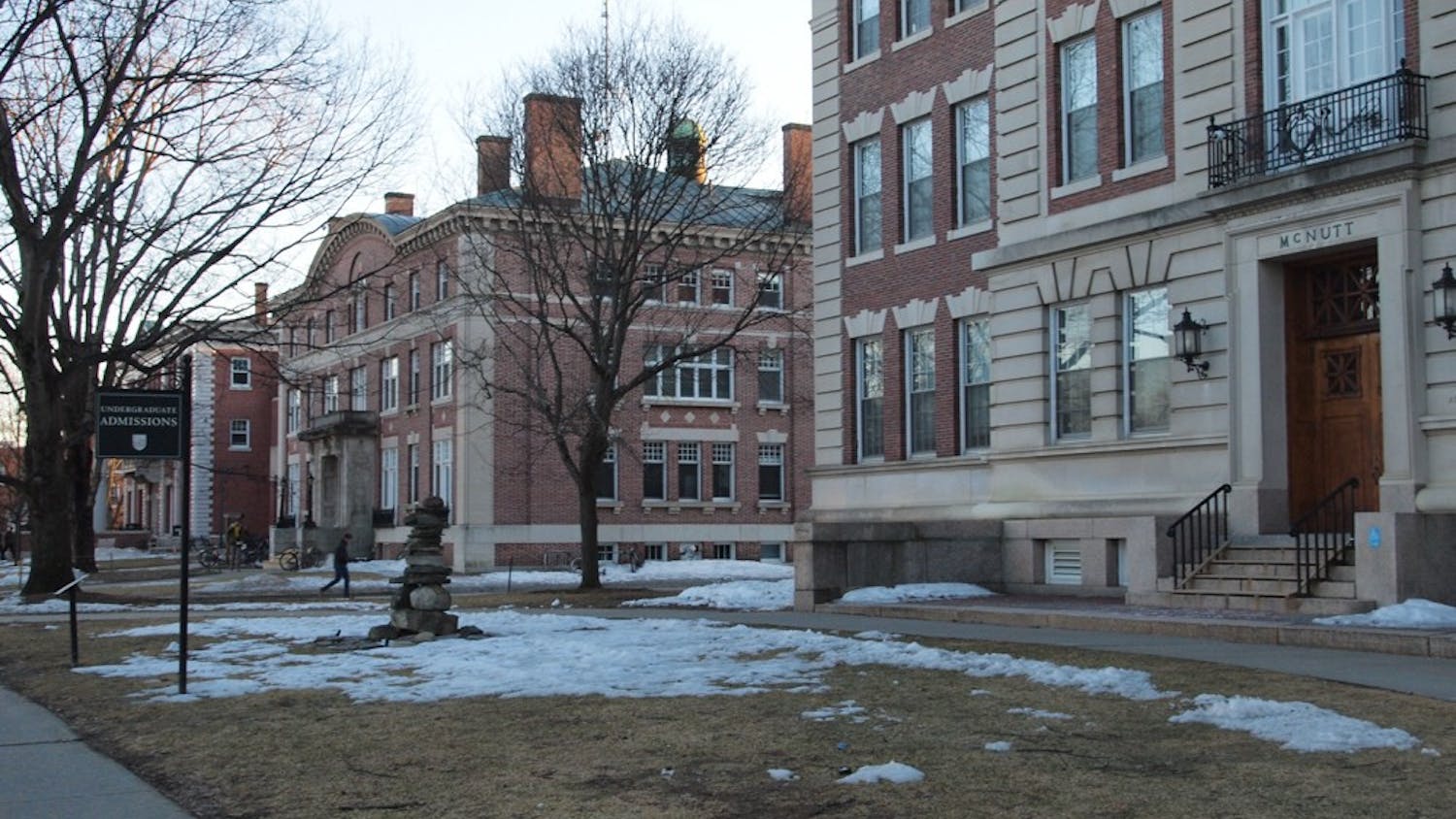On Tuesday, Dartmouth welcomed a total of 1,749 individuals to the Class of 2025 out of 28,357 applicants. Students admitted to the Class of 2025 navigated the admissions process in a year that saw a 33% increase in the number of applicants, pushing the acceptance rate to a record low of 6.17%.
The release of acceptance decisions for the Class of 2025 marks the second year that incoming students have had to decide on a college during the pandemic. While the number of applicants increased dramatically from last year, the number of accepted students is significantly lower than those of the past 40 years — roughly 1,900 students are admitted in a typical year.
Recently admitted students will join the 591 students admitted in the early decision round to make up the Class of 2025. Early decision applicants were also at a record high this year, with 2,664 applicants compared to the 2,069 that applied early to the Class of 2024.
Additionally, 172 students admitted as members of the Class of 2024 opted to take a gap year and join the Class of 2025, a sharp rise from the 30 to 40 students who elect gap years on average. Despite this increase, dean of admissions Lee Coffin said in May the College would not be expanding the Class of 2025’s size to accommodate for students who took gap years.
Coffin did not respond to a request for comment.
In the fall, the eight Ivy League schools released a joint statement announcing that due to the large number of applicants this year, “Ivy Day” — the day that all Ivy League institutions release their admission decisions — would be pushed back to early April in order to allow admissions officers more time to thoroughly evaluate applicants. Typically, Ivy League schools release admissions decisions at the end of March.
Senior admissions fellow Julia Snodgrass ’21 believes that the 33% increase in applicants was due to a variety of factors brought on by the virtual application process.
“I think a big piece … is that we went test-optional, which made it easier to apply without the pressure of having a high test score,” Snodgrass said. “I think there was also just a general panic with the pandemic about where [students are] going to end up and what's happening with online school.”
Due to the test-optional nature of this year’s application cycle, the College did not publicly report test score averages as it typically does. The College plans to continue its test-optional policy for the Class of 2026 admission process, according to a February announcement by the admissions office.
Admitted student Zoë Faith said that Dartmouth’s test-optional policy was intimidating because she was only familiar with admissions processes that consider test scores a key component. However, she added that the pandemic offered her more time to craft her essays and eventually choose to attend Dartmouth.
“I was able to spend a lot of time researching Dartmouth and making sure that it was the school and Ivy I wanted to apply to,” Faith said.
Admitted students represent individuals from all 50 states, Washington, D.C., Puerto Rico and Guam. California has the most students represented in the class of any state, followed by New York, Massachusetts, New Jersey and Texas. International students make up 15% of the class, with the largest international cohorts coming from Canada, China, the United Kingdom, India and Brazil.
Students who identify as “Black, Indigenous or other people of color” make up 48% of the class. Fifty-one Indigenous groups are represented, and 17% of students are first-generation college students, a new high for the College.
$51.6 million will be awarded to 50% of ’25s for need-based scholarships, a $5.8 million increase from the previous year. Moreover, the average scholarship awarded to students will be $60,556, a significant increase from last year’s $55,600 and 2019’s $53,000. The admissions office projects that roughly 17% of the Class of 2025 will be eligible for federal Pell Grants.
Snodgrass said that this April, the admissions office will be facilitating “Pine Pods,” which provide admitted students the option to join groups led by current students who help integrate ’25s into the Dartmouth community. She added that the pods will form in April and continue until May 3.
James Mosley , who was admitted in November through the QuestBridge program, said that, because the College deemphasized test scores for his admissions cycle, he became “hyper-aware” of the other components of his application. He added that the pandemic had made the application process challenging because there were no in-person opportunities to connect with counselors or advisers.
“It feels like all the hard work that I've done since freshman year has paid off and I'm just ready to embark on this journey that I've been waiting on for a long time,” Mosley said.
Admitted student Mellie Wang said that she was unable to visit campus due to the U.S. travel ban on China, which created uncertainty around her ability to return home to China. She said that she relied heavily on virtual admissions opportunities and information to understand which school was the best fit for her, ultimately choosing Dartmouth.
“What really drew me to Dartmouth was its emphasis on community, because I was born and raised in a small town,” Wang said.
Faith, Mosley and Wang all said they were excited to connect with others in their class after a long virtual senior year. After commenting on just one post on Instagram, Faith said she has already begun to chat through social media and hopes to recognize a few familiar faces when she arrives on campus in the fall.
Similar to last year, Dartmouth will offer virtual alternatives to Dimensions, which in previous years offered admitted students the chance to visit the College and experience campus life. Throughout April, admitted students will be placed into their “Pine Pods” to connect with current students and participate in an extensive schedule of online programming.
Accepted students have until May 3 to accept or decline their offer of admission.

Manasi Singh '24 is from Cincinnati, Ohio. She is majoring in anthropology and politics, philosophy and economics. At The Dartmouth, she wrote for news and Mirror but later transitioned to the business staff. Manasi now serves as the Publisher.




